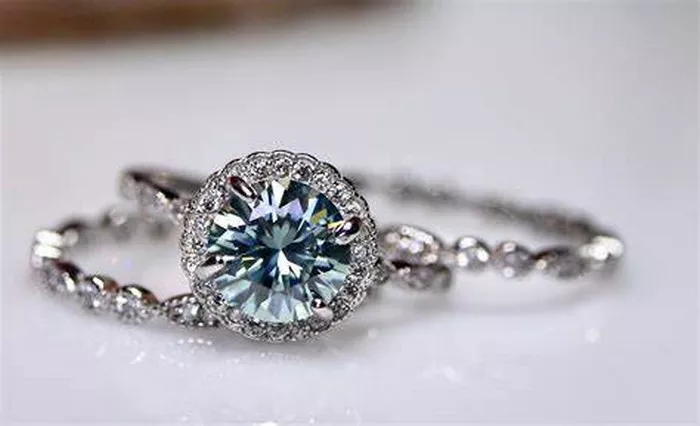Wedding rings, timeless symbols of love, commitment, and unity, carry profound significance across cultures and traditions. Beyond their ornamental beauty, wedding rings symbolize the bond between partners, marking a significant milestone in their journey together. This comprehensive article explores the deep-rooted meanings and cultural symbolism associated with wedding rings, examining their historical evolution, modern interpretations, and personal significance. Whether you’re preparing for your own wedding or seeking to understand the symbolism behind these cherished symbols, delve into the rich tapestry of meanings woven into wedding rings.
Historical Evolution of Wedding Rings
The tradition of exchanging wedding rings dates back thousands of years, evolving through various civilizations and cultural practices:
Ancient Origins:
Egyptian Influence: Ancient Egyptians believed that circles symbolized eternity, leading to the exchange of rings made from braided reeds or hemp as symbols of unending love and commitment.
Roman Tradition: Romans adopted the tradition of exchanging iron rings to symbolize strength and permanence in marriage. Gold rings later became popular among the wealthy, symbolizing wealth and social status.
Medieval Europe:
Christian Influence: Christian weddings formalized the exchange of rings as a sacred vow, representing the union blessed by God. Rings adorned with gemstones symbolized fidelity and prosperity.
Posy Rings: Medieval Europeans engraved romantic verses or messages (posies) inside rings as tokens of affection and commitment.
Symbolism and Meaning of Wedding Rings
Wedding rings hold diverse symbolic meanings that transcend their physical attributes:
Circle of Eternity:
Endless Love: The circular shape of wedding rings signifies eternal love and unity without beginning or end. It represents the continuous and unbreakable bond between spouses.
Unbroken Commitment: The unending circle symbolizes the enduring commitment and loyalty pledged by partners to each other in marriage.
Unity and Partnership:
Bond of Marriage: Exchanging rings during the wedding ceremony symbolizes the formalization of the marital bond. It signifies the union of two individuals into a single entity, united in love and mutual respect.
Equal Partnership: Wedding rings symbolize equality and mutual respect between partners, acknowledging their shared responsibilities and commitment to supporting each other.
Promises and Vows:
Sacred Pledge: Rings serve as tangible reminders of the vows spoken during the wedding ceremony. They represent promises of love, fidelity, and support made between partners in the presence of witnesses.
Symbol of Trust: Wearing wedding rings signifies trust and transparency in the marital relationship, fostering open communication and emotional intimacy.
Cultural Significance of Wedding Rings
Wedding ring traditions vary across cultures, reflecting unique beliefs and customs:
Western Traditions:
Left Hand Ring Finger: In many Western cultures, including North America and Europe, wedding rings are traditionally worn on the left-hand ring finger. This tradition stems from the ancient belief that a vein in this finger (vena amoris) leads directly to the heart.
Exchange of Rings: Couples exchange rings during the wedding ceremony as a public declaration of their commitment and intentions to build a life together.
Eastern and Global Traditions:
Right Hand Ring Finger: In Eastern European and some Asian cultures, wedding rings are worn on the right-hand ring finger. This tradition may vary based on regional customs and personal preferences.
Symbolic Designs: Rings may feature culturally significant designs, motifs, or gemstones that represent blessings, prosperity, and marital harmony within specific cultural contexts.
Modern Interpretations and Trends
Contemporary wedding ring designs and trends reflect evolving tastes and personal expressions:
Customization and Personalization:
Unique Designs: Couples opt for custom-designed rings that reflect their individual styles, incorporating meaningful engravings, birthstones, or unique metal finishes.
Mixed Metal Rings: Mixing metals such as white gold with rose gold or platinum with titanium allows for creative expression while symbolizing the blending of two distinct personalities into a harmonious union.
Alternative Materials:
Non-Traditional Choices: Some couples choose alternative materials like titanium, tungsten, or carbon fiber for their wedding rings due to their durability, modern aesthetics, and hypoallergenic properties.
Ethical Considerations: Rings made from ethically sourced materials, such as conflict-free diamonds or recycled metals, appeal to couples committed to sustainability and social responsibility.
See Also: Is Wearing a Diamond Lucky?
Personal Significance of Wedding Rings
For individuals, wedding rings hold deeply personal meanings and memories:
Emotional Connection:
Sentimental Value: Wedding rings become cherished heirlooms that evoke memories of the wedding day, shared experiences, and milestones throughout the marital journey.
Family Legacy: Passing down wedding rings through generations symbolizes continuity, family traditions, and the enduring legacy of love and commitment.
Symbol of Identity:
Visible Commitment: Wearing a wedding ring signifies a public declaration of marital status and commitment, fostering a sense of belonging and partnership within the community.
Daily Reminder: Wedding rings serve as daily reminders of the promises made and the enduring love shared between partners, reinforcing their bond during both joyful and challenging times.
Choosing the Perfect Wedding Rings
Selecting wedding rings involves thoughtful consideration and alignment with personal values:
Shared Values: Choose a ring that resonates.
Meaningful Selection:with your shared values, beliefs, and aspirations as a couple. Consider symbolism, design aesthetics, and the emotional connection evoked by the rings.
Quality and Craftsmanship:
Expert Guidance: Consult reputable jewelers or designers who specialize in wedding rings. Seek craftsmanship, quality materials, and ethical practices to ensure your rings reflect lasting beauty and value.
Symbolic Gestures:
Custom Engravings: Personalize rings with meaningful engravings, dates, or messages that symbolize your unique journey as a couple.
Conclusion
Wedding rings transcend their physical form, embodying profound symbolism, cultural traditions, and personal significance in the institution of marriage. Whether exchanged in a traditional ceremony or customized to reflect contemporary tastes, wedding rings symbolize eternal love, unity, and commitment between partners. By understanding the rich meanings woven into wedding rings—from their historical origins to modern interpretations—couples can embrace these cherished symbols as tangible expressions of their enduring bond and shared journey through life together. Embrace the timeless tradition of wedding rings, celebrating love, unity, and the promise of a future filled with happiness and shared dreams.

